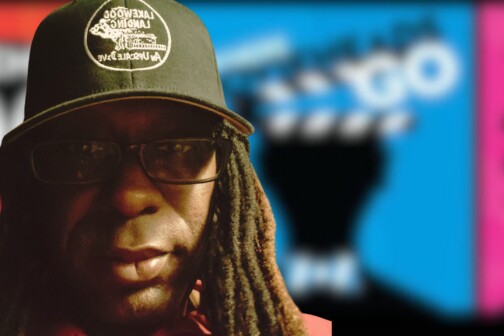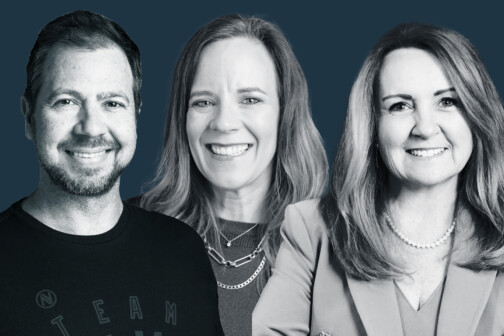
Let’s get this out of the way so you can categorize me: I grew up in suburban Kansas City (Overland Park), had six minorities in my high school (graduating class of 670), and went to SMU undergrad and law school. I’m one of those rich, white, suburbanites who commutes into downtown Dallas every day. I have been a commercial real estate attorney for 30 years. Got me pigeonholed?
Now take an African American or Hispanic from South Dallas or West Dallas or East Dallas, who commutes to their job every day in Downtown or North Dallas. Got them pigeonholed?
Throw in a controversial topic — like whether we rebuild or tear down I-345. Does your race or place of residence or income level really, in and of itself, define your thought process on this question? TXDOT, not surprisingly, just proposed to rebuild the highway, with no real consideration of alternatives. In the face of what they knew were entrenched powerful interests, a brave few have come forward to tilt at that windmill—to challenge the status quo ante, to propose a new order.
The concentration of affordable housing in the Southern section, and HUD’s recent challenge to Dallas to create/support affordable housing in downtown, is another highly controversial topic rooted in race and place and income. Name-calling based on place and race and income is an antiquated concept nationally, but, unfortunately, still has a lot of play in Dallas.
Now for the shocker for those who pigeonholed me earlier: I was an affordable housing attorney early in my career and for 11 years left legal practice to develop affordable housing. I have worked with and along both African American and Hispanic leaders. I also became a Fair Housing advocate, to the point of suing cities (including the suburb I live in) for not allowing apartment development (talk about tilting at windmills).
When I came back to practicing law, I worked on an urban mixed-use, mixed-income development in Hollywood—a W Hotel and Condos and 375 apartments, 75 or which are affordable in the midst of this $600 million development. And it is located above an LA Metro train station. Imagine mixed-income, mixed-use, transit-oriented development in a city with horrible traffic issues. My eyes were opened: Could we do this in Dallas? What benefits would this type of transit-oriented development pattern bring to the region? Yes, the rich white suburban guy who at the time drove a Hummer H3, started thinking about whether our “drive until you qualify,” and please build more highway lane miles to support it—that guy had an epiphany.
I came back to Dallas after working for more than two years on the Hollywood project, and traded my H3 in for a Ford Fiesta. I started taking DART. I got involved with the Congress for New Urbanism and Urban Land Institute. I started reading books upon books about the “built environment”–how what/how we are building today is not sustainable. How we can’t build (or afford) enough highways to support the projected growth in North Texas. And how our fascination with the automobile has dealt a severe blow to what were once vibrant people oriented places.
My son now drives my Fiesta and I drive a Lexus hybrid that gets close to 50 MPG. (How do you categorize me now? A Lexus hybrid—is he corporate or is he green?) I decided to dedicate the balance of my legal career to the urban core of Dallas.
Now that I’ve looked under the hood (bad analogy intended) of how the regional transportation/infrastructure/work-to-home environment works, I’m finding a 1972 Vega engine behind the glossy Cadillac finish. It is fundamentally inefficient and outdated, and it won’t continue to run well—if at all—going forward if we just keep on doing the same thing. (Remember the definition of insanity?) I have similar thoughts around how we have developed affordable housing in Dallas, including some of the housing I built.
In school, we are taught to challenge the established norm; this is the basis of critical thinking, without which we might still believe the world is flat and, to play the “race card,” we might continue to look at minorities as either possessions or second-class citizens. It really is OK to say, “What will happen if we tore down I-345? Can we analyze how this has worked in other U.S. cities like San Francisco and Milwaukee, or international cities like Seoul, to see if it might be beneficial for Dallas?” And can we openly discuss what true mixed-income housing would look like in downtown Dallas or North Dallas?
Are we mature enough as a city to have this dialogue, trying to do what is best for the city and all its residents, both short-term and long-term, without immediately reverting to our old ways of name-calling? The minute we play the North vs. South Dallas card, or pit White vs. Black vs. Hispanic, we demonize very well intentioned, thoughtful people who, if you really get to know them and are willing to listen, have the best interests of the entire city at heart. You may politely disagree. But you may actually learn a thing or two.
One of those six minorities in my high school was one of my best friends. And I’m socially liberal but economically conservative. One minute I work on a multi-million dollar office or hotel, and the next on fair housing in the Valley. Categorize me now.
If we want name-calling, place/race/income level categorization, watch Fox News, CNN, or the U.S. Congress—polarizing political babble. If instead we want to get something done that makes DFW a better place, then we need a North Texas Revolution that listens and learns from each other in an atmosphere of respect and working for the greater good of the entire region.




